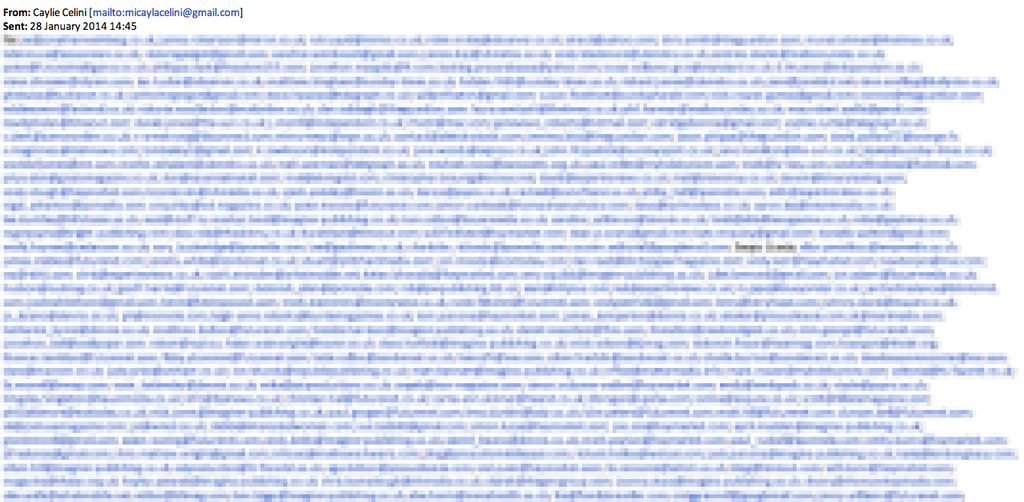UPDATE: 31 Feb: Reid Jackson, who also reveals he is 18 years old, has just emailed journalists apologising for what was a mistake, not a clever ploy.
He says: "I hired a PR who proceeded to send a mass email to UK tech journalists, creating a chain mail and releasing their emails to the world (ironic, being that we're an app focused on anonymity).
"Apparently another PR then followed up and tried to spin the story into one where it made the move look intentional. I hope that everything is okay and not too much damage was done."
UPDATE 21:40: Reid Jackson, from the app's parent company, emails to say: "Nothing spreads the desire for anonymity quite like showing why we all crave it sometimes."
So elaborate stunt or honest mistake? Could this be a deliberate act designed to show us how important anonymity is? It's hard to imagine that the company will have won any friends by forwarding the contacts of several hundred people's email addresses around the internet.
The Data Protection Act makes it clear that public data disclosure must be done with the consent of the person to whom it relates, so there's that too.
And if PR campaigns now have to resort to such guerilla tactics to get noticed, where will this end? Is the era of the spoof/mistake release upon us?
The PR person running the campaign for this new anonymous use feedback app is getting some attention, but not in the way intended.

The press release, which stresses how important anonymity is these days, was sent to just about every technology reporter and editor in the UK. With their email addresses in the CC field, not the private BCC one.

Verdict is an iPhone app that lets people give and get opinions anonymously. It works by allowing people to post an image and a description (ie 'What do you think of my watch?'). Other users can then vote the image up or down and the initial user can see the feedback.Think of it as 'hot or not' for stuff; anonymity means the public will judge the picture, not the user.Anonymity is especially relevant at a time when internet companies are passing information to corporations, advertisers and governments. We live in a time when everything on the internet is social; users are forced to take ownership of everything that they post or engage with.
The PR then sent the email again, this time BCC'ing her impressive list, but without mentioning the previous faux pas.
Of course, the brand is being talked about, that's the point of PR and there's no such thing as bad publicity. It could just be an honest mistake - we've all done it.
I did email the company just to check this isn't in fact part of some elaborate PR stunt, and will update if I get a response.
